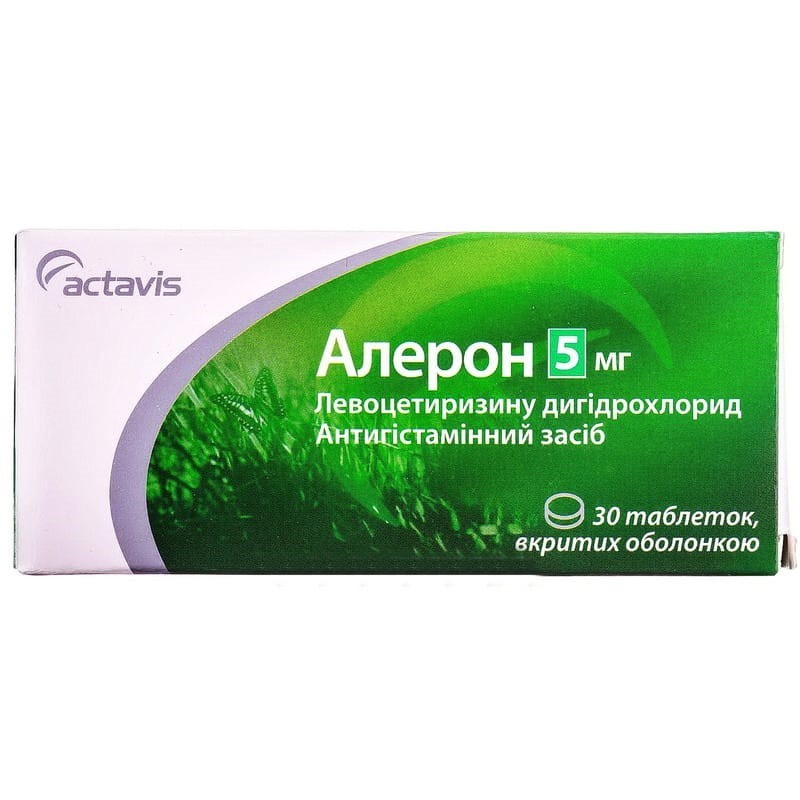



 Secure and encrypted payment processing
Secure and encrypted payment processing We ship to over 40 countries including the USA, UK, Europe, Australia and Japan
We ship to over 40 countries including the USA, UK, Europe, Australia and Japan Guaranteed refund or reship if you haven't received your order
Guaranteed refund or reship if you haven't received your orderlevocetirizine is an active stable r-enantiomer of cetirizine, belongs to the group of competitive histamine antagonists. pharmacological action due to the blocking of n1-histamine receptors. affinity for n1-histamine receptors in levocetirizine is 2 times higher than in cetirizine. affects the histamine-dependent stage of the development of an allergic reaction, reduces eosinophil migration, vascular permeability, and limits the release of inflammatory mediators. prevents the development and facilitates the course of allergic reactions, exhibits antiexudative, antipruritic, anti-inflammatory effects, practically has no anticholinergic and antiserotonin effects.
Pharmacokinetics The pharmacokinetic parameters of levocetirizine are characterized by a linear dependence and almost do not differ from those of cetirizine.
The drug is rapidly absorbed when taken orally, food intake does not affect the degree of absorption, but reduces its speed.
There is no information regarding the distribution of the drug in human tissues, as well as regarding the penetration of levocetirizine through the BBB. Distribution volume - 0.4 l / kg. Linking blood plasma proteins - 90%.
About 14% of levocetirizine is metabolized in the body. Given the low degree of metabolism, the absence of increased inhibitory effect, the interaction of levocetirizine with other substances (and vice versa) is unlikely.
Excretion of the drug occurs mainly by glomerular filtration and active tubular secretion. T½ is 7.9 ± 1.9 h; total clearance is 0.63 ml / min / kg. It does not accumulate, it is completely excreted from the body for 96 hours. 85.4% of the dose is excreted unchanged in the urine, about 12.9% with feces.
In patients with impaired renal function (creatinine clearance 40 ml / min), the clearance of the drug decreases, and T½ lengthens (so, in patients who are on hemodialysis, the overall clearance is reduced by 80%), and this requires the selection of an appropriate dosage regimen. During a standard 4-hour hemodialysis, a small portion (10%) of levocetirizine is removed. Penetrates into breast milk.
Symptomatic treatment of allergic rhinitis (including year-round allergic rhinitis) and urticaria.
The drug aleron is prescribed for adults and children over the age of 6 years by mouth in a daily dose of 5 mg once a day, regardless of food intake. the tablet must be swallowed whole with a little water. elderly patients with normal renal function, a dose reduction is not required. for patients with impaired renal function, dose calculation should be carried out taking into account creatinine clearance in accordance with the table.
To use this dosing table, creatinine clearance (CLcr) of the patient in ml / min. KLcr (ml / min) should be estimated by the creatinine content in blood plasma (mg / dl) according to the following formula:
| KLcr = | [140 - age (years)] ∙ body weight (kg) ∙ 0.85 (for women) | . |
| 72 ∙ plasma creatinine level (mg / dl) |
Dose adjustment in patients with impaired renal function:
| Kidney function | Creatinine clearance, ml / min | Dose and number of doses |
|---|---|---|
| Normal kidney function | ≥80 | 5 mg once a day |
| Mild disorders | 50–79 | 5 mg once a day |
| Moderate disorders | 30–49 | 5 mg 1 time in 2 days |
| Severe disorders | 30 | 5 mg 1 time in 3 days |
| End stage kidney disease
Dialysis patients |
10 | Contraindicated |
For children with impaired renal function, the dose of the drug must be individually adjusted taking into account the patients renal clearance and his body weight.
Patients exclusively with hepatic insufficiency do not need to adjust the dosage regimen. Patients with hepatic and renal failure adjust the dosage regimen according to the table above.
The duration of treatment for patients with periodic allergic rhinitis (the duration of the symptoms of the disease is 4 days a week or for 4 weeks) should be treated in accordance with the disease and medical history; treatment can be discontinued if symptoms disappear, and can be resumed again when symptoms reappear. In the case of persistent allergic rhinitis (the duration of the symptoms of the disease was